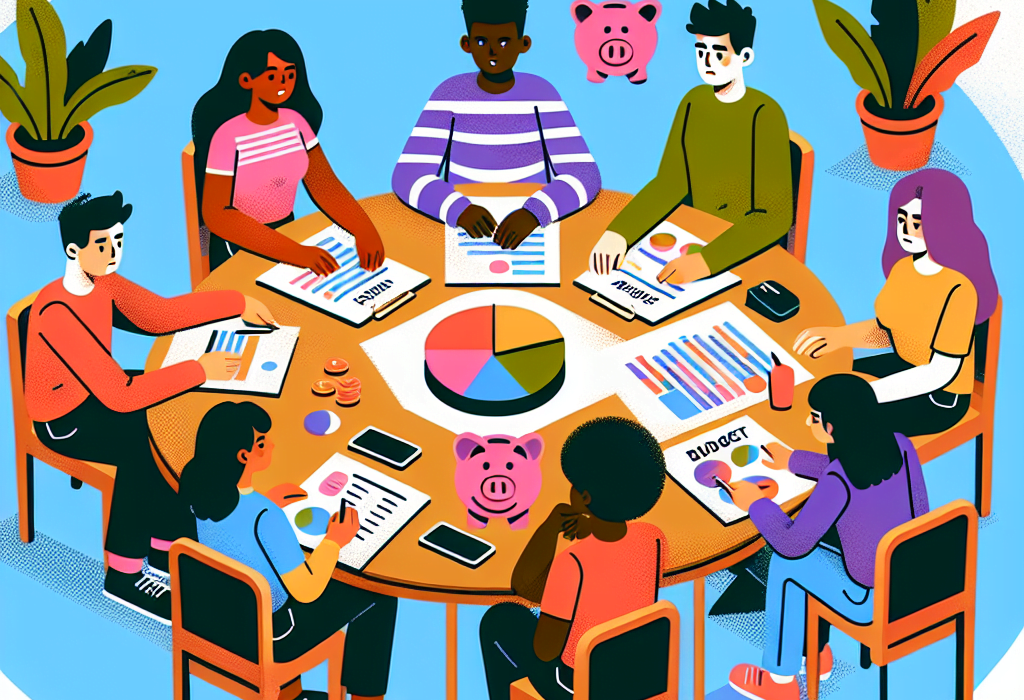Financial management is a skill that everyone should aim to master, especially young people who are entering adulthood. To prevent future financial difficulties, it is crucial to learn and practice effective budgeting strategies from a young age. In this article, we will delve into several strategies that can guide young people in their journey towards financial prudence.
1. Understanding the Concept of Budgeting
Budgeting is simply a plan that outlines your income and expenses over a period, typically a month. It is a roadmap that shows where your money is going and helps track your spending habits. Understanding this concept as a younger person is crucial as it aids in avoiding unnecessary spending.
2. Set Financial Goals
Your budget should be guided by your financial goals. If you are saving to buy something major like a car or hoping to travel after graduation, these goals should be factored into your monthly budget. This will help you allocate funds wisely and avoid impulse buying which can derail your financial plans.
3. Track your Income and Expenses
An effective budgeting strategy involves keeping track of your income and expenses. You should keep records of what you earn, whether it’s from a part-time job or an allowance, and what you spend, be it on necessities or leisure activities. The fastest way to financial trouble is not knowing where your money is going, so make sure you track everything.
4. Learn to Save
Saving is a significant part of budgeting. It is advisable to start building an emergency fund, retirement fund, or savings account from a young age. Even if the amount is minimal, the important thing is to cultivate the savings habit. This will pay enormous dividends in the long run.
5. Avoid Debt
It might be tempting to take out a loan or apply for a credit card, but it’s always best to avoid debt, especially at a young age. If you must borrow, make sure it’s for something worthwhile and that you have a clear plan to pay it back on time. Avoiding unnecessary debt will save you from a lot of financial stress in the future.
6. Use Budgeting Tools
In today’s digital age, there’s no shortage of apps and online tools that can help manage your finances. They can track your spending, offer suggestions on where to cut back, and help you stay on course with your savings plan. Utilize such budgeting tools to simplify the process and increase your success rate.
Conclusion
These are some of the strategies that can guide the youth into effective budgeting. Remember, the key is to take action. Start simple, stay disciplined, and your financial future will be secured. Those who master the art of budgeting at a young age are often the ones who enjoy financial freedom in their adulthood. It’s never too early or too late to start.
Frequently Asked Questions (FAQs)
1. Why is budgeting important for youth?
Budgeting helps young people to understand and control their finances. It sets a foundation for good financial habits that can lead to a financially secure future.
2. What are the best budgeting tools for youth?
There are several excellent budgeting tools available, such as Mint, YNAB (You Need A Budget), and PocketGuard. They are user-friendly and designed with young people in mind.
3. How can I make budgeting a habit?
Start by tracking your income and expenditure daily. You can use an app or just a simple notebook. Over time, monitoring your finances will become a habit.
4. Can I still have fun and keep a budget?
Yes! Budgeting doesn’t mean you can’t have fun. It just means you should plan for it. Include a category in your budget for leisure activities and stick to it.
5. Is it possible to save while in school?
Definitely. Even if your income is small, you can make a habit of saving a certain percentage towards your future goals.













